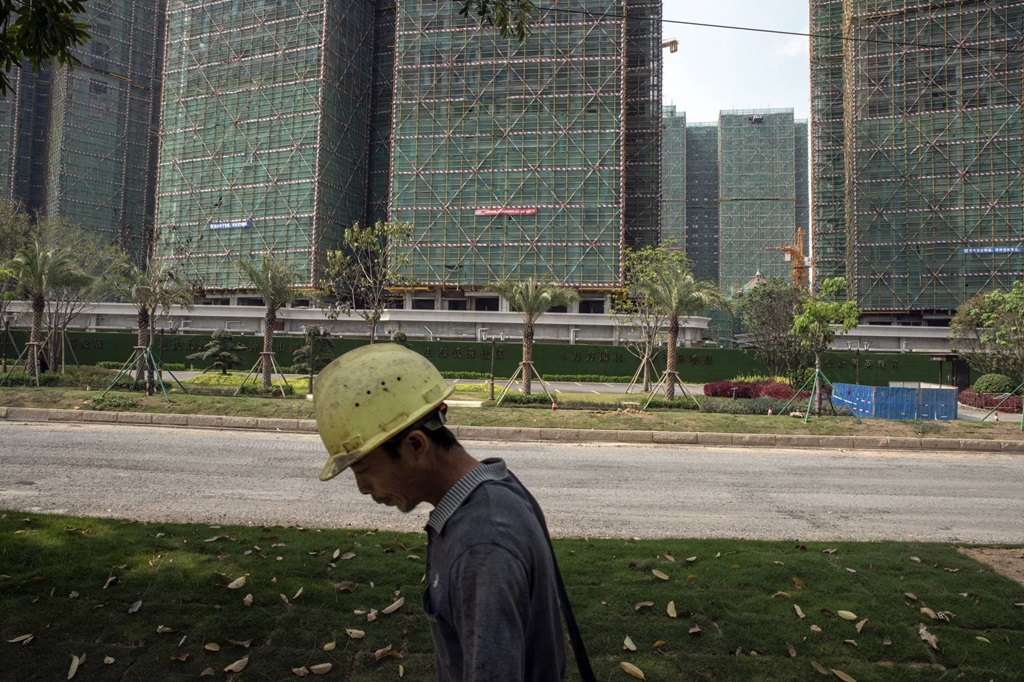A major Chinese shadow bank that lent billions to China’s crisis-hit property developers has filed for bankruptcy because it could not pay its debts. A Beijing court accepted the application of Zhongzhi Enterprise Group (ZEG), a lender of billions of dollars to real estate companies.
In November, Chinese authorities investigated “suspected illegal activities” involving the company.
In November, Zhongzhi Enterprise Group informed investors via letter that its liabilities, estimated at approximately $38 billion (£50.6 billion), had surpassed its assets by up to $64 billion (£50.6 billion).
On Friday, a Beijing court stated on WeChat that ZEG’s “assets are inadequate to repay all debts, and it manifestly lacks the capacity to do so in full.”
ZEG is a significant participant in China’s shadow banking sector, which comprises a network of credit intermediaries, brokers, and lenders operating beyond the purview of conventional regulated banking.
Unregulated shadow banking is exempt from the same capital, risk, and liquidity constraints that govern conventional banks.
Shadow Banking in China
While informal lending has a long history in China’s economy, shadow banking experienced significant growth following the 2008 global financial crisis, characterized by limited access to credit.
An estimated $3 trillion is the worth of China’s shadow banking sector. It frequently offers vital financial support to the nation’s real estate industry. The credit crisis has severely impacted the once-thriving industry, putting several of the largest companies on the verge of financial insolvency.
Reportedly, the asset management division of ZEG managed over a trillion yuan ($139 billion; £110 billion) at its height.
Authorities announced in November that they had “criminal coercive measures” against “many suspects,” which only exposed the municipality to the wider property crisis.
Concerning their identity and function within the firm, much remains unknown. Xie Zhikun, the founder of the organization, suffered a myocardial infarction in 2021.
After the insolvency of property developer Evergrande and Country Garden’s financial difficulties, the most recent developments at ZEG have sparked fears of additional unrest in the world’s second-largest economy. Prominent real estate developers owe Chinese banks up to 30 percent of the bank assets in debt.
Transparency and regulatory supervision
The property industry contributes one-third of China’s gross domestic product. This encompasses real estate properties, brokerage and rental services, construction materials, and industries that manufacture apartment components.
In recent years, shadow banks in China have attracted considerable scrutiny because of their exponential expansion and potential ramifications for the nation’s financial stability.
Although shadow banking does not operate within the conventional banking system, its existence does give rise to apprehensions regarding transparency and regulatory supervision.
Shadow banks are a heterogeneous collection of non-bank financial intermediaries that offer comparable services to conventional banks while evading equivalent regulatory scrutiny.
In addition to peer-to-peer lending platforms and trust companies, these entities comprise wealth management products. Frequently, they function as an indispensable credit source for individuals who fail to meet the eligibility criteria for loans offered by conventional financial institutions.
Shadow Banking Hazards in China
Many factors have contributed to the expansion of shadow banking in China, encompassing an expanding credit demand, the pursuit of alternative investment prospects, and regulatory arbitrage.
As debtors and investors sought financial services outside the conventional banking system in response to the increased risk aversion of traditional banks following the global financial crisis, the sector expanded rapidly.
Although shadow banking is essential for extending credit to underserved sectors of the economy, it also presents substantial hazards.
A lack of regulatory oversight and transparency, which exposes investors and creditors to greater levels of risk, is one of the primary concerns.
The interdependence between shadow banks and conventional financial institutions may amplify systemic risks in a financial decline. Chinese regulators have implemented measures in response to shadow banking’s dangers.
These measures encompass the enforcement of more stringent regulations, the augmentation of supervision, and the improvement of risk management protocols within the financial industry. However, maintaining a delicate equilibrium between promoting financial innovation and preventing excessive risk-taking remains a formidable obstacle.
With China ongoing to grapple with the intricacies of its financial system, the future course of shadow banking continues to be ambiguous.
Further regulatory reforms and endeavors to improve risk management and transparency are expected to significantly influence this industry’s development. Continually observing the ramifications of these advancements on the overall financial environment and economy is of the utmost importance.
By Geoff Thomas






